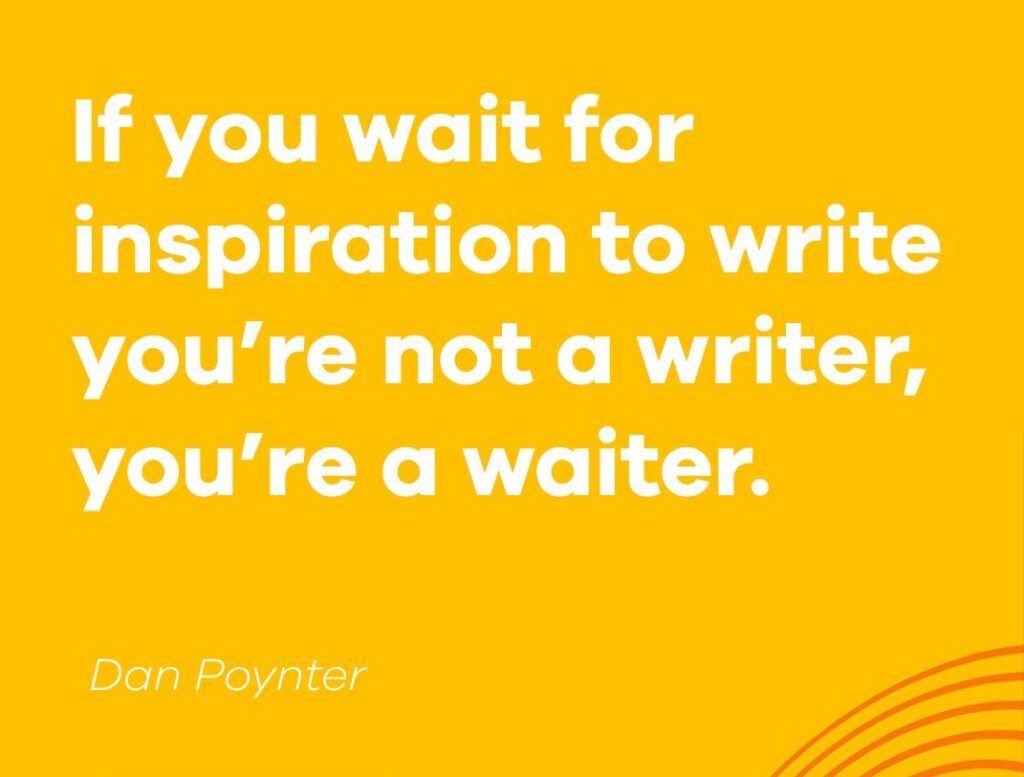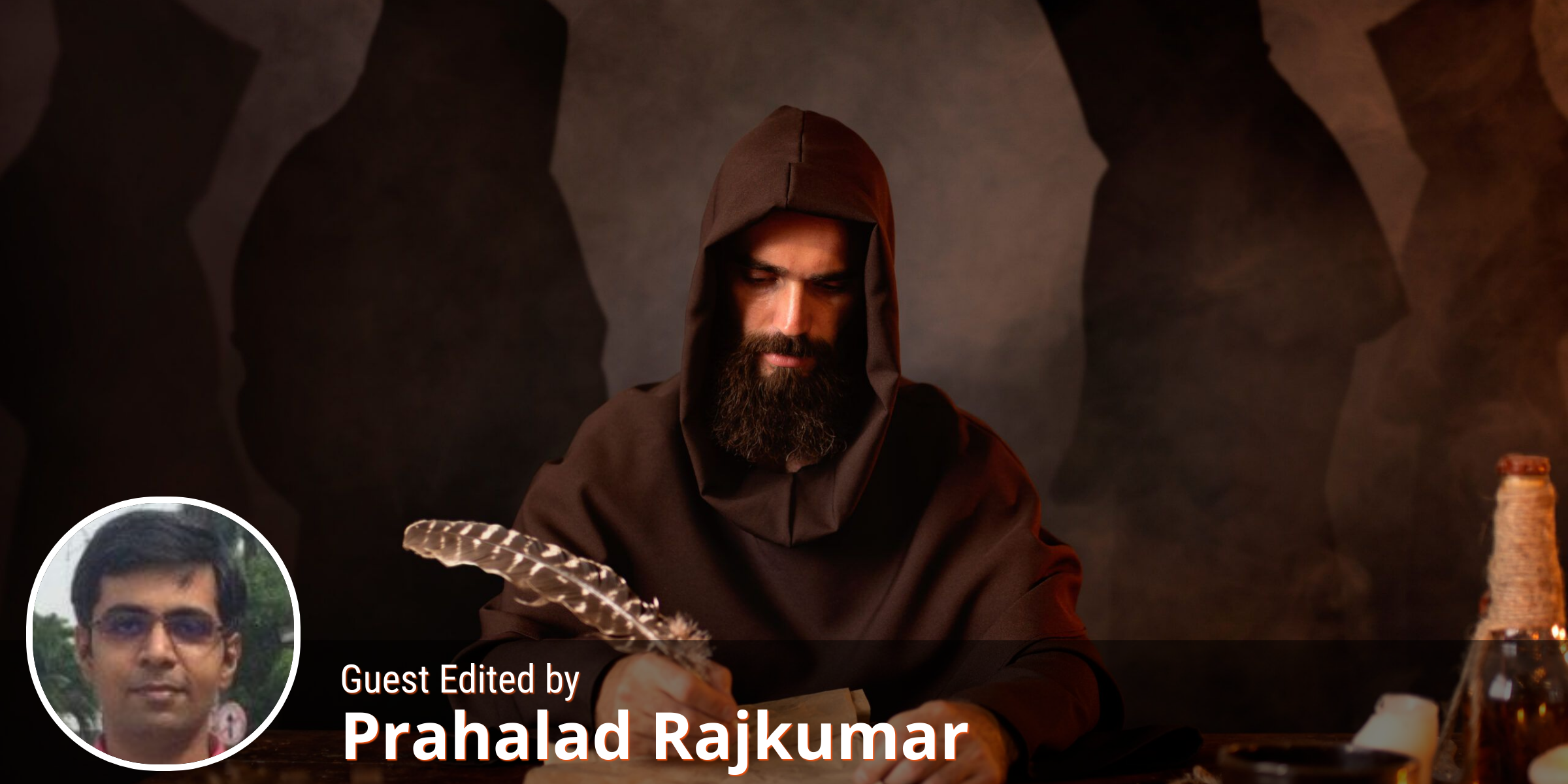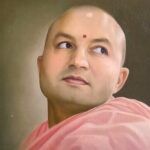Having participated in the first os.me writing workshop, should I join the second workshop?
My answer was a resounding yes. Five more days of writing practice in a timed setting with a group holding me accountable – this sounded delightful. And who knows, maybe I would learn more writing lessons (spoiler alert: I did).
I was not alone — Niraj Chandra, Soma Mohanty Garg, Riya Om, Neha Srivatsava, and Danielle Om Der Bedrossian Wells — who participated in the first workshop, returned for the second edition.
Writing is an art and science that is incredibly empowering. We learnt to express ourselves better with this os.me workshop conducted by editor-in-chief Medha Shri. However, there was a side-effect I didn’t see coming. We tapped into the power of words to connect with ourselves better and get a step closer to meditation.
Here are some of the workshop’s features and the benefits the participants took home.
Impromptu Exercises to Switch On that Sense of Urgency
“It takes me more than three weeks to prepare a good impromptu speech” ~~ Mark Twain.
No, we did not have three weeks to write our impromptu articles. We wrote our impromptu articles in 15-minute stretches or less. Before writing, we had a few minutes (usually 3) to think about the ideas, and after writing, we edited our articles for a few minutes (usually 5).
To say this was a challenge is an understatement.
“You have three minutes to jot down your ideas”, Medha Shri would say. My mind would conjure up everything except ideas. “Your time is up. Write your articles”, the next instruction would reverberate. Uh-oh. I would now write down ideas on steroids. I would then try to stitch some words together to make up an article. All was well on some occasions, other occasions produced duds, but it was all part of the game.
In the Walk the Dragon course, spiritual leader Om Swami asked business owners and startup founders to operate with a sense of urgency. In this writing workshop, participants had to write with a sense of urgency, with the backdrop of a ticking clock.
We produced work under such pressure at 5:30 am (for most of the patricipants, some others joined from different time zones). We didn’t think it was possible until we did it ourselves. It helped us realise we underestimate our talent, which is the first step towards self-love.
Get Over the Self-Sabotaging Inner Voice
“Procrastination is the most common manifestation of Resistance because it is the easiest to rationalise” ~~ Steven Pressfield.
Putting your article out there is daunting.
This fear is real and comes with a side-effect: it gives an open invitation to procrastination. Before you know it, you sit on your unpublished drafts for days together, if not weeks or months. You want to put your best article there but and postpone publishing because you think it is still not your ‘perfect’ article yet. That elusive perfection is a handicap. Then there is the fear of being judged. What will they think? Will they like it enough? Will they judge me for my emotions and vulnerabilities?… So on.
The best way to get around this is to build the “Press Publish” muscle. Press publish even if your drafts are not perfect. Press publish even if you think your article is not a masterpiece. Just press publish.
The workshop provided an organic way to press the publish button. The participants wrote two articles each session and were required to post them on os.me.
When we were hesitant and did not post the articles, Medha Shri would chide us to post them. And if this slipped past Medha Shri’s sight (school day memories, anyone?), members in the OS.ME Writers Club WhatsApp group kept us accountable.
Long story short: We flexed our collective “Press Publish” muscles in the workshop and embraced our writing talent. We came out more confident of our voice and creative talent.
Masterclass in Consistency
“Learning is not attained by chance, it must be sought for with ardor and diligence” ~~ Abigail Adams.
The first os.me writing exercise was not just a workshop but also a masterclass.
The second edition was no different. Medha Shri offered several tangible suggestions to write better. Getting over fear and pressing publish is the first step. Writing consistently is the next step. Somewhere down the line, we need to learn the bells and whistles of writing to improve how our words fall on paper.
Medha Shri offered plenty of tips to improve our writing skills. Here is a small sampling:
- Write to move, motivate or inspire.
- Do your research. Read 5-6 articles online on the topic you’re writing.
- Give your characters a flaw. Make them realistic. But give them virtues as well. William Shakespeare, for example, was known to put his heroes on a pedestal but give them one tragic flaw that brought their downfall.
- Surprise the reader. Don’t make your writing predictable.
- Repeat your story goal 2-3 times in your article. This has two benefits: It reminds the reader what your article is about. It is a good SEO practice, it helps search engines discover your articles.
- Re-read your articles before posting it. If you can’t read your article, how can you expect your readers to read it?
Catharsis and Clarity of Thoughts
Every time I write, it’s a catharsis” ~~ Piper Vaughn.
In The Artist’s Way, Julia Cameron outlines a writing exercise she gives all her students: The Morning Pages. Each morning, she asks her students to write three pages of free-hand text. This helps get all the gunk out of the head, freeing the brain to function productively throughout the day.
Medha Shri asked the participants to start with a 3-minute stream of consciousness writing (which we did not publish), in the spirit of Julia Cameron’s morning pages.
The writing workshop produced an unexpected benefit (or was it expected? You tell me) – catharsis. Putting all the proverbial gunk out there helped lighten the head and brought clarity.
A Community Endeavour — A Place Called Home
“We have all known the long loneliness, and we have found that the answer is community” ~~ Dorothy Day
Writing is a solitary endeavour.
Writing together with others had a special charm. It provided accountability, for starters. There was no question of checking WhatsApp messages on the side. No falling down the YouTube rabbit holes. We wrote without distractions.
After the session officially ended, some participants stayed back and hung out. We connected with one another and chatted. About writing. About os.me. About anything and everything. We found home in each other, and as Nikunj put it, it was about walking each other home.
On OSME Writers Club WhatsApp group, we welcomed participants of the second workshop. If you are a participant and would like to be part of the group and discuss writing (only writing), email Medha Shri (medha@os.me).

Transformative ideas
Can articles written in 15 minutes, 10 minutes or even 5 minutes be transformative? You bet!
A Mom is a Mom is a Mom In this exercise, we had to write a story from the perspective of a side character. Cinderella’s stepmother in this instance. Elena (who doesn’t do early mornings but sportingly participated in this workshop) describes in detail all the challenges and hurdles that Lady Tremaine faces. And leaves us with a life lesson: don’t judge anyone, we never know what difficulties they may be going through.
I am Useless – “I am useless”. So thinks the alarm clock. Vamsi Krishna Anyam pens a sweet dialogue between the alarm clock and God. God compassionately and gently tells the alarm clock about her usefulness. Substitute the alarm clock with any human being plagued with self-doubt (translation: the vast majority of human beings), and this dialogue is the perfect life lesson.
By the way, we did this writing exercise in real-time. We all wrote about a prop from Medha Shri’s bookshelf – an alarm clock. There was an additional twist: Medha kept feeding oxymorons which we had to include in our article.
The ABCs of a Meaningful Life – This is the Abcedarius exercise, where we write an article with sentences in alphabetical order. For participants who did this exercise in the first workshop, Medha asked us to write sentences in reverse alphabetical order. Niraj Chandra was travelling from Ottawa to Toronto, but diligently made sure he attended this workshop from his hotel room. In this superb Z to A article, he combined slices of his life with nuggets of wisdom.
Before the Crack of Dawn – Lina loves the break of dawn, and expresses her delight and appreciation in her Abcedarius article.
The Awakening – Satheesh Dinakaran describes a seeker’s journey, through the lens of a character named Shiva, in his Abcedarius article.
Anatomy of a Day – Suman Verma gives eclectic pieces of wisdom in her Abcedarious article.
Beginnings and Endings – Is this an article? A Poem? A work of art? Decide for yourself in this smooth Abcedarius piece from Soma Mohanty Garg.
Story of Two Monks – In response to the visual prompt exercise on Day 1 of the workshop, Ravi Trivedi recounted a beautiful story of two monks. This piece contains one crucial lesson: Let go of past hurts, griefs and other negative emotions (that we usually hold on to).
Do I Know Sonia Well Enough?: This article by Peace Kindness has nothing to do with peace or kindness. It has blood, drama, and the whole shebang. And a terrific twist in the tale.
Yellow – This masterpiece by Payoja Verma inspired one of the workshop exercises: Describe yellow to a blind person using the senses of sound, smell, taste and feel. I, for one, found this exercise extremely challenging.
Watch it Now!
Wisdom from Om Swami
Resistance – Why do most of us fail to keep our resolutions? When we know something is good for us, why do we not do this? The answer: an invisible force called resistance. Spiritual leader Om Swami covers this topic in great depth and gives actionable suggestions to defeat resistance.
How to Build a New Habit – Do you want to build a new habit? Look no further – Spiritual Leader Om Swami shares three golden rules for building any new habit.
We improved our writing thanks to the workshop, yes. Interestingly, participants reported life benefits too. Some said so in the Zoom sessions. Others left heart-warming comments in Medha Shri’s newsletter.
The workshop helped us hone our craft and sharpen our writing, undoubtedly. However, it also was an empowering experience that taught us to respect our talents, to not listen to the voice that tells us we aren’t good enough, to have a more confident voice, and to love ourselves a bit more.
PS: Did you find this Digest useful? Let me know in the comments. Know someone who’d find it helpful? Share this post with them and introduce your friends and family to our phenomenal Karma program.








Comments & Discussion
55 COMMENTS
Please login to read members' comments and participate in the discussion.